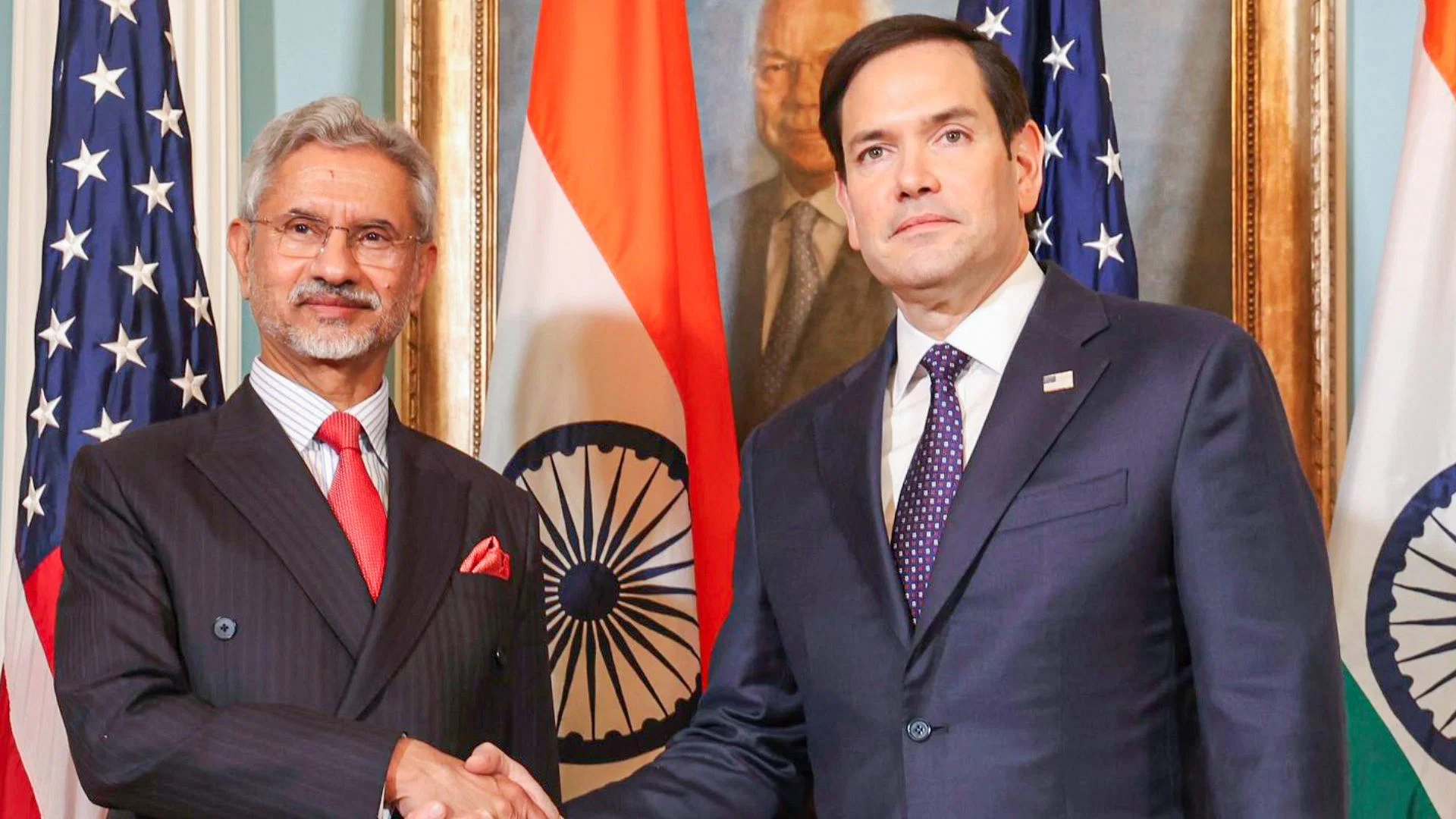India-US Ties: Jaishankar and Rubio to Hold Crucial Meeting Amid Tariff Dispute, Trade and Security High on Agenda
External Affairs Minister (EAM) Dr. S. Jaishankar and United States Secretary of State Marco Rubio are set to meet face-to-face in New York today, marking their first direct engagement since the Trump administration imposed steep tariffs on India. According to an official US advisory, the meeting will take place at 8:30 pm IST, on the sidelines of the United Nations General Assembly (UNGA).
This meeting carries special significance, as it will be the first formal dialogue between top Indian and American representatives following Washington’s decision to impose a 50 percent tariff on Indian goods. The move had caused visible strain in bilateral trade relations, disrupting supply chains and impacting exporters on both sides. Against this backdrop, both countries will be looking to find common ground and identify solutions through constructive dialogue.
Why the Meeting Matters
India and the United States share a complex but strategically important partnership. In recent years, ties have seen phases of both cooperation and friction. While the two countries have collaborated closely in areas such as defense, technology, and the Indo-Pacific security framework, trade disagreements—especially tariff-related issues—have added challenges to the relationship.
Today’s meeting between Jaishankar and Rubio could set the tone for how both sides navigate these differences. Trade will be at the heart of the discussions, but the agenda is expected to extend much further, covering issues of global security, regional stability, and multilateral cooperation.
Third Direct Interaction This Year
This will be the third in-person meeting between the two leaders in 2025. Their first encounter took place during the Quad Foreign Ministers’ meeting in Washington in January, followed by a second meeting in July at another Quad summit. With today’s engagement, both sides will have an opportunity to build on earlier conversations and push for greater alignment on key strategic matters.
Trade Talks in Focus
Separate bilateral trade talks between India and the US are also taking place in parallel. Observers believe that the Jaishankar-Rubio discussion could give fresh momentum to these negotiations. India is particularly concerned about the burden of tariffs on its industries and exporters, and will likely push for reductions or exemptions.
Key topics expected to dominate the conversation include:
- Addressing the widening trade deficit.
- Exploring ways to encourage greater bilateral investment.
- Discussions on tariff adjustments and market access.
- Boosting technology collaboration and digital trade opportunities.
For Washington, ensuring a level playing field and creating opportunities for US exporters will remain a priority, while New Delhi will emphasize protecting the interests of its domestic industries.
Beyond Trade: Strategic and Global Issues
The significance of this meeting goes beyond economics. With tensions rising in the Indo-Pacific region, particularly amid China’s growing assertiveness, the US wants India to play a stronger role in regional security. Additionally, ongoing global crises—such as the Israel-Palestine conflict, energy security, and the resilience of global supply chains—are also expected to feature in the dialogue.
India, while willing to strengthen its strategic partnership with the US, will also aim to maintain a balanced approach in global affairs, ensuring its autonomy and multi-alignment strategy are preserved.
A Defining Moment in India-US Relations
The Jaishankar-Rubio meeting is being closely watched by diplomats, trade experts, and global markets alike. With both countries acknowledging that their partnership is too important to be derailed by disputes, this engagement could help lay the groundwork for more stable, long-term cooperation.
If the discussions yield positive results, they could not only ease current trade tensions but also open new doors for collaboration in defense, energy, technology, and global governance. At a time when the international order is undergoing rapid transformation, such dialogues between India and the United States hold the potential to influence not just bilateral ties, but also the broader geopolitical landscape.
